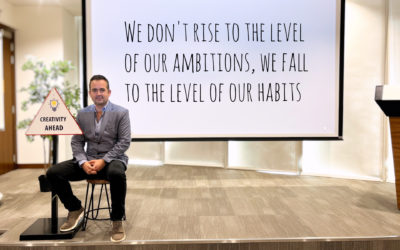What are the Basic Concepts of AI That Modern Leaders Should Understand and Why is it Important for Them to Stay Up to Speed, Even If They Are Not Technical? Estimated reading time: 8 minutes Understanding AI Fundamentals: Essential for informed decision-making. Key...
Thomas Edison, often touted as ‘America’s Greatest Inventor’, failed often and fast. More than 500 patent applications submitted by Edison during his career were either declined or abandoned. After more than 9,000 failed attempts to perfect a novel storage battery concept, he famously exclaimed: “I have not failed 10,000 times—I’ve successfully found 10,000 ways that will not work.”
Edison would go on to file over a thousand successful patents during the course of his lifetime, a record only recently broken by another American inventor called Lowell Wood. The phonograph, the lightbulb, the earliest movie cameras, alkaline batteries… Just a handful of the world-changing inventions Edison bestowed on society, in large part driven by a trait we can all muster: iterative thinking.
Every year and at an accelerating pace, your association is being pulled, kicked, and shoved more and more outside of its comfort zone by human-made and natural forces. Stakeholders should always feel pressed to audit their association’s relevance and technological capabilities, and it looks like the pandemic has certainly had that effect. Beyond the existential angst this has thrust upon many associations however, lies vast opportunity.
Iterative Design Thinking
One of the most paralyzing addictions many associations share is the desire for certainty and guarantees before implementing the level of change and innovation often needed to safeguard their future success. Paradoxically, waiting until the perfect solution presents itself often leads people to do very little, very slowly, which is exactly the wrong approach in this 21st-century technological paradigm.
So how do you pierce this cycle and break out of the complacency brought upon by a decade of robust economic growth and a relatively care-free business environment; how do you not only survive but thrive in leaner times?
Simply put, iterative thinking can be defined as the ability to reach a successful outcome by taking very small steps very frequently, rather than wait for the one definitive, perfect leap. It means not waiting for certainty in an increasingly uncertain world but leveraging the momentum of accelerating change in your favor.
Incubate your future
In practice, adopting an iterative methodology means switching to a more experimentally driven environment where small budgets and short time slots are allocated towards experimentation and innovation. Allow your teams – no, actively encourage them – to test and trial new ideas and technologies, even if those experiments are not immediately and manifestly relevant to the association’s day to day affairs.
For example, while many associations are currently debating and considering elaborate, costly, and often wide-reaching changes to their event and meeting formats, smart associations will quickly experiment with a range of tools, formats, and audiences to find out what sticks. The democratization of technology means it is now possible to implement just about any idea on a small scale within days, not months or, heaven forbid, years.
Struggling to make an impression on your virtual audience in the same way you could in the real world? Buy a €100 green screen on Amazon, create a broadcast-grade background video with free tools like Magisto or iMovie and invest in a €50 ring light to enhance facial lighting during Zoom video calls and within a day you’re hosting a slick, memorable and professional broadcast nearly indistinguishable from televised media. Quick results, and a chance to gather instant feedback from your community which you can leverage to refine and perfect your routine; €150 well spent.
Don’t be afraid to experiment as you will inevitably stumble upon powerful, affordable, and rapidly deployable solutions that will boost your fortunes and streamline your future workflows.
If power is increasingly concentrated in the hands of young technologists and innovators running multi-million or multi-billion-dollar companies, it is because they are of a generation and a mindset that embraces uncertainty and volatility. They know and understand that no established process ought to be sacred and that rapid iteration and experimentation is never a waste of time or money, but a powerful methodology for achieving fast and significant positive change within an organization.
While we cannot do much about our ages, we can choose to remove our self-imposed shackles and allow ourselves the freedom not to be told by others what the right next move is, but to be change-makers and pioneers. You will thank yourself in 2030.
Originally published in Boardroom Magazine | view the original








